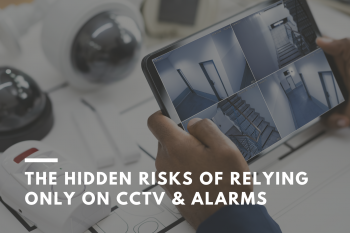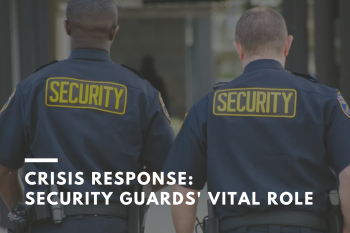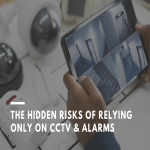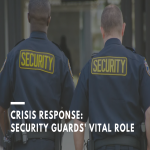1. Patient Safety: Security measures help prevent unauthorized access to sensitive areas such as patient rooms, operating theaters, and medication storage.
2. Prevent Theft and Violence: Hospital security can deter theft of medical supplies, equipment, and pharmaceuticals, as well as reduce the risk of violence or aggressive behavior within the premises.
3. Emergency Response: An effective security system can aid in responding to emergencies such as fire outbreaks, natural disasters, and medical emergencies, ensuring orderly and safe evacuation.
4. Protection of Personal Information: Hospital security measures help safeguard patient and staff information and prevent data breaches and identity theft.
5. Regulatory Compliance: Hospitals must comply with various regulatory standards relating to security and patient safety, and robust security measures can ensure adherence to these standards.
Overall, the importance of hospital security measures cannot be overstated, as they play a vital role in maintaining a safe and secure environment for everyone within the hospital premises.

Types of security measures in hospitals
Hospitals generally employ various security measures to ensure a safe environment for patients, staff, and visitors. These measures may include physical security features such as access control systems, security cameras, and alarm systems. Hospitals often implement security personnel, such as security guards, to monitor and patrol the premises. Some hospitals also use electronic monitoring systems to track the movement of patients and staff. Finally, many hospitals have specific protocols for handling emergencies and managing potential security threats.
Evaluating the current security measures
To assess your hospital's security measures, review existing protocols and identify potential vulnerabilities.
Consider factors like access control, surveillance systems, and
staff training. Please keep in mind any areas needing improvement
or updates and prioritize measures based on their impact on
overall security. Regular evaluation and adjustment of security
measures are crucial in maintaining a safe and secure
environment for patients and staff.
Identifying potential security gaps
Security gaps in hospitals can pose severe risks to patients, staff,
and sensitive information. It's essential to identify potential
security gaps to ensure the safety and confidentiality of everyone
in the hospital. Here are some key things to look for when
evaluating security measures:
1. Access control: Are there areas in the hospital where unauthorized individuals could gain access? Are there any doors or entrances that do not require proper authorization to enter?
2. Surveillance systems: Are there blind spots in the surveillance camera coverage? Are the cameras functioning correctly and providing clear images?
3. Staff training: Are all staff members trained in security protocols and aware of their roles and responsibilities in the event of a security breach? Identifying and addressing these potential security gaps is crucial in maintaining a safe and secure environment within the hospital.
Implementing effective security solutions
Security solutions in hospitals are essential to ensure the safety of
staff, patients, and visitors. Implementing effective security
measures involves using technologies and
procedures to safeguard the premises. This can include installing
access control systems, surveillance cameras, and alarms and conducting regular security assessments and staff
training. By implementing these measures, hospitals can better
protect against unauthorized access, theft, and potential security
threats.
Staff training and awareness
Staff training and awareness are crucial components of a hospital's security measures. All employees, from doctors to janitorial staff, should receive regular training on security protocols. This includes recognizing suspicious behavior, using emergency response procedures, and adequately using security equipment. Training should be ongoing to ensure that staff know the latest security threats and best practices. Remember, a well-trained staff is the first line of defense in maintaining a secure hospital environment.
Utilizing technology for enhanced security
Hospitals are increasingly using technology to bolster their security measures. Hospitals can better protect their premises, staff, and patients from potential threats by incorporating advanced surveillance systems and access control technologies. These technologies enable real-time monitoring of various areas within the hospital, ensuring swift responses to any security incidents. Additionally, biometric identification systems and innovative card access control solutions are being implemented to regulate entry to sensitive areas, enhancing overall security effectiveness.
Emergency response and crisis management
Hospitals must have effective response and crisis management procedures in an emergency or crisis. This includes ensuring that all staff members are trained to respond in high-pressure situations and having clear communication and coordination protocols. Hospitals should also regularly conduct drills and practice scenarios to ensure everyone knows their role and can act quickly and efficiently in an emergency. Additionally, having strong partnerships with local law enforcement and emergency response teams is essential for a coordinated and effective response to crises.
Regular security audits and updates
Regular security audits and updates are essential to keep your hospital's security measures effective. You can identify vulnerabilities, improve existing security protocols, and stay ahead of potential security threats through routine audits and updates. This proactive approach ensures that your hospital's security measures are always up-to-date and capable of addressing evolving security risks. Regular security audits and updates also demonstrate a commitment to prioritizing patient safety and data protection, enhancing the overall security posture of your hospital.
Summary and Future Considerations
After reviewing your hospital's current security measures, it is essential to think about future improvements. Some factors to
consider for future security measures include technological
advancements, staff training, and regular security assessments. It
is necessary to continuously monitor and update security protocols
to ensure the safety and well-being of patients and staff.
Additionally, seeking feedback from employees and patients can
provide valuable insights for enhancing security measures.











